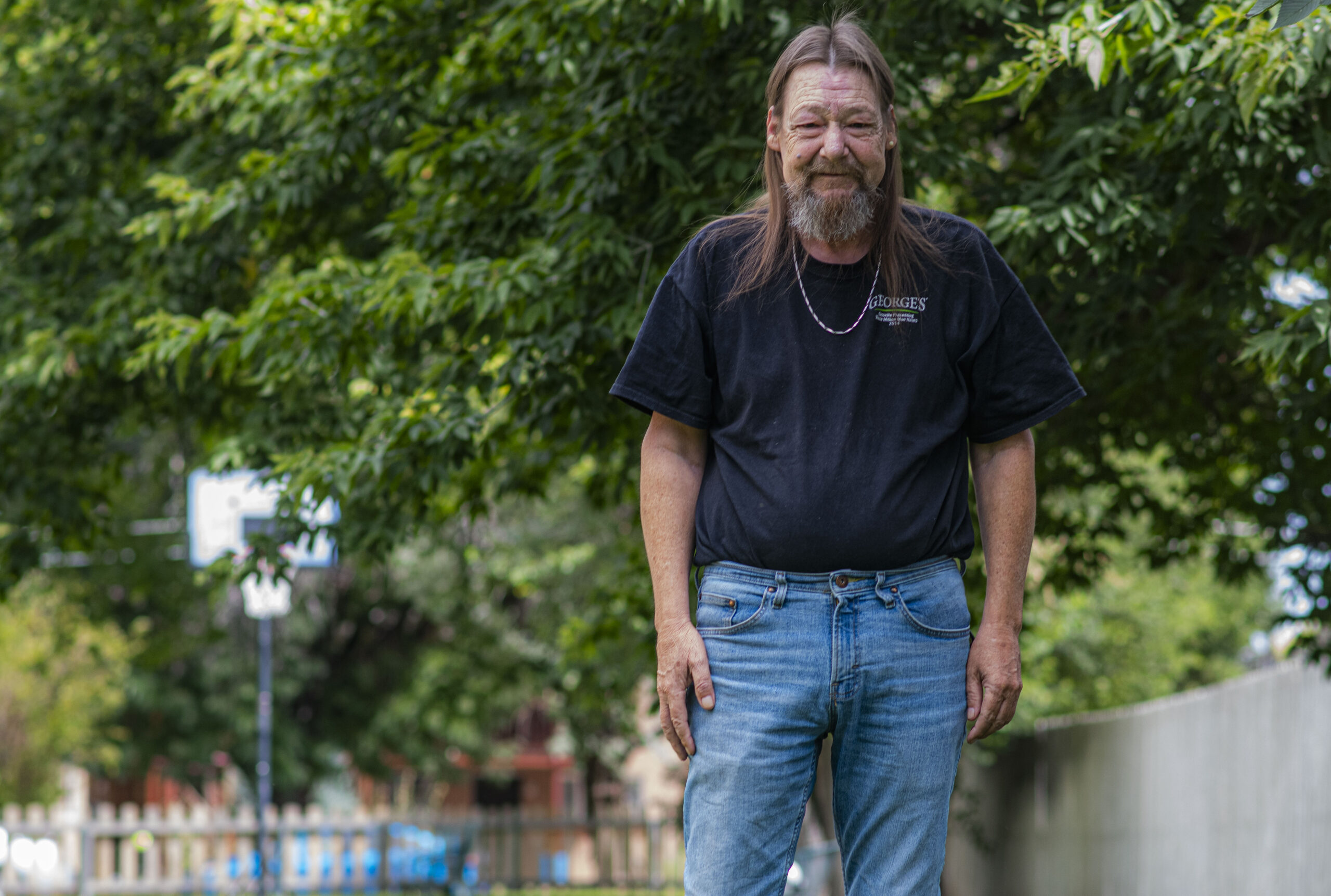Note: The following post discusses suicide. If you or someone you know needs 24/7 immediate support, call 1-844-493-TALK (8255), text TALK to 38255 or visit the Walk-In Center at 4353 E. Colfax Ave. in Denver. For more information and additional locations: coloradocrisisservices.org. For support outside Colorado, call 988.
Life has an uncanny way of confronting us with gut wrenching decisions that leave lasting imprints on our hearts. For Andrew, that recent moment was a year ago when he entrusted his three dogs to other people, knowing that he would be unhoused and could not provide them with a home. The overwhelming stress of experiencing homelessness and heartache culminated in a breakdown with thoughts of suicide.
Compassionate Care in Suicide Prevention
For the past five years, Andrew has experienced mental blackouts where time slips away and his memories dissolve into thin air. These occur due to underlying mental health conditions and intense mental and emotional distress where it feels impossible to carry on functioning normally.
For Andrew, the gravity of these experiences escalates to a point where they turn into thoughts of suicide. After waking up in a hospital room once again on suicide watch, he received a call from a compassionate voice at WellPower.
WellPower has embraced the Zero Suicide framework, a national model and statewide initiative which aims to reduce deaths by suicide. Last year, our Zero Suicide program added a peer specialist, a person with direct experience with suicide, who serves as a contact for people who are in transition – those who are in the hospital like Andrew and those who are leaving the hospital for suicidal ideation or a suicide attempt.
A compassionate connection can often provide what a person needs to ride the wave of suicidal ideation without acting on it. It takes a median of 56 days before a person we serve typically reports no longer feeling symptoms of suicide, according to WellPower data.
Courage To Confront the Past and Forge a Better Future
Andrew’s life has been a series of trials and tribulations; his first thoughts of suicide were when he was a teenager. At 15, Andrew fell into the grips of heroin, seeking an escape from childhood abuse. His high school girlfriend died of an overdose when they were both 22, driving him to the brink of suicide. He quit cold turkey and with 27 years of sobriety, he is still committed to heal from the inside out.
Andrew’s work with his peer specialist from Zero Suicide has proven transformative, equipping him with tools to navigate his thoughts. He has discovered invaluable strategies to counter his negative emotions and redirect his thinking when he is aware of a downward spiral. “I’ve come to realize that my life still holds promise,” said Andrew. “I’m not done yet; there’s so much ahead. If I let suicide take me, it robs me of everything I still have to experience.”
Finding Refuge in Residential Homes
Over the past year, Andrew has moved in and out of various residential homes. Residential facilities serve as a temporary placement where a person can receive support and gain stability until a more permanent placement is secured.
The last six months at WellPower’s Beeler House have marked a turning point for his recovery. WellPower operates 14 residential facilities, including Beeler House and nine apartment buildings. At Beeler House, Andrew was connected with critical resources including a cardiologist to address this his heart issues, and a psychiatrist to navigate this mental health conditions.
The structured routine and support that Beeler House offers have proven crucial. Engaging in group sessions twice a day has allowed Andrew to draw insights from his peers as well as tap into his own strength and resilience. “This place will change your life,” said Andrew. “It’s not just going to take you off the street, it will change your way of thinking and you will receive the medical and psychiatric attention you need.”
The significance of having a stable place to call home cannot be overstated in the context of recovery. Andrew knows this firsthand: the absence of a stable living situation for the last 30 years caused immense stress in his life, acting as a catalyst for his thoughts towards suicidal ideation.
Andrew graduates from Beeler House this month and will move into another residential facility with a lower level of care. He feels equipped with the tools and resources to maintain his recovery and does not experience suicidal ideation. “I didn’t know about WellPower until I went to the hospital and was put on suicide watch,” said Andrew. “I wish I had known about this place sooner. I am proud of the person I am today; I would not have changed on my own, but I didn’t know this sort of help was out there.”


